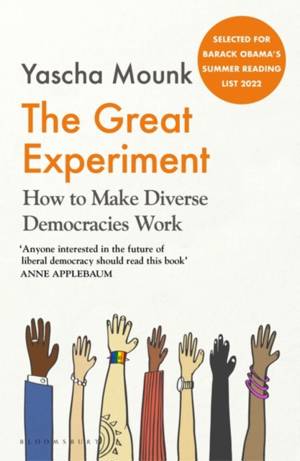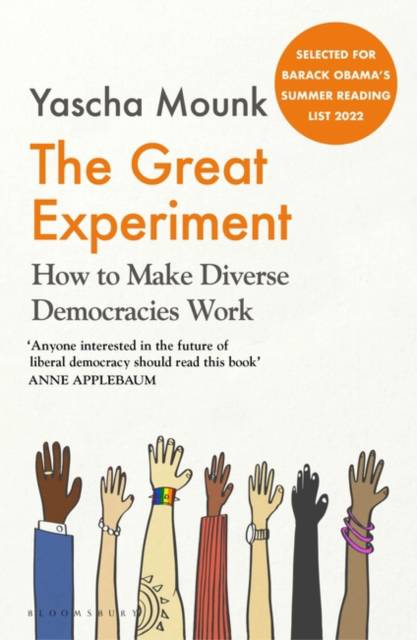
- Afhalen na 1 uur in een winkel met voorraad
- Gratis thuislevering in België vanaf € 30
- Ruim aanbod met 7 miljoen producten
- Afhalen na 1 uur in een winkel met voorraad
- Gratis thuislevering in België vanaf € 30
- Ruim aanbod met 7 miljoen producten
Zoeken
€ 18,45
+ 36 punten
Omschrijving
One of our most important political thinkers looks to the greatest challenge of our time: how to live together equally and peacefully in diverse democracies.
It's easy to be pessimistic about the fate of democracy in multi-ethnic societies. At the end of the Second World War, fewer than one in twenty-five people living in the UK were born abroad; now it is one in seven. The history of humankind is a story of us versus them, and the project of diverse democracies is a relatively new one - it is, in other words, a great experiment.
How do identity groups with different ideologies and beliefs live together? Is it possible to embark on a democracy with shared values if our values are at odds?
Yascha Mounk argues that group identity is both deeply rooted and malleable. No community is beyond conciliation: groups are moving towards cooperation across the world. The Great Experiment offers a profound understanding of the problem behind all our other problems, and genuine hope for our capacity to solve it.
It's easy to be pessimistic about the fate of democracy in multi-ethnic societies. At the end of the Second World War, fewer than one in twenty-five people living in the UK were born abroad; now it is one in seven. The history of humankind is a story of us versus them, and the project of diverse democracies is a relatively new one - it is, in other words, a great experiment.
How do identity groups with different ideologies and beliefs live together? Is it possible to embark on a democracy with shared values if our values are at odds?
Yascha Mounk argues that group identity is both deeply rooted and malleable. No community is beyond conciliation: groups are moving towards cooperation across the world. The Great Experiment offers a profound understanding of the problem behind all our other problems, and genuine hope for our capacity to solve it.
Specificaties
Betrokkenen
- Auteur(s):
- Uitgeverij:
Inhoud
- Aantal bladzijden:
- 368
- Taal:
- Engels
Eigenschappen
- Productcode (EAN):
- 9781526630155
- Verschijningsdatum:
- 30/04/2023
- Uitvoering:
- Paperback
- Afmetingen:
- 129 mm x 198 mm
- Gewicht:
- 256 g

Alleen bij Standaard Boekhandel
+ 36 punten op je klantenkaart van Standaard Boekhandel
Beoordelingen
We publiceren alleen reviews die voldoen aan de voorwaarden voor reviews. Bekijk onze voorwaarden voor reviews.







